Cooper Flagg have been compared with so many big names since he made his debut as an NBA player. It is too early to make such a strong statement, as he is still a freshman who needs to keep up with the pace.
His arrival in the NBA was arguably the most anticipated since Zion Williamson. Not since Anthony Davis dominated the paint has a prospect carried such a heavy two-way burden of expectation.
Now, over ten games into his rookie season with the Dallas Mavericks, Flagg’s professional journey begins, giving us a unique opportunity to answer the central questions which have been going around.
The answers to all the questions are complex, nuanced, and reveal that the No. 1 overall pick in the 2025 NBA Draft is not just an imitation of his predecessors but a statistical archetype on his own. He is a modern hybrid built for the pace and spacing of the current NBA.
Table of Contents
The Standard For Freshman Greatness
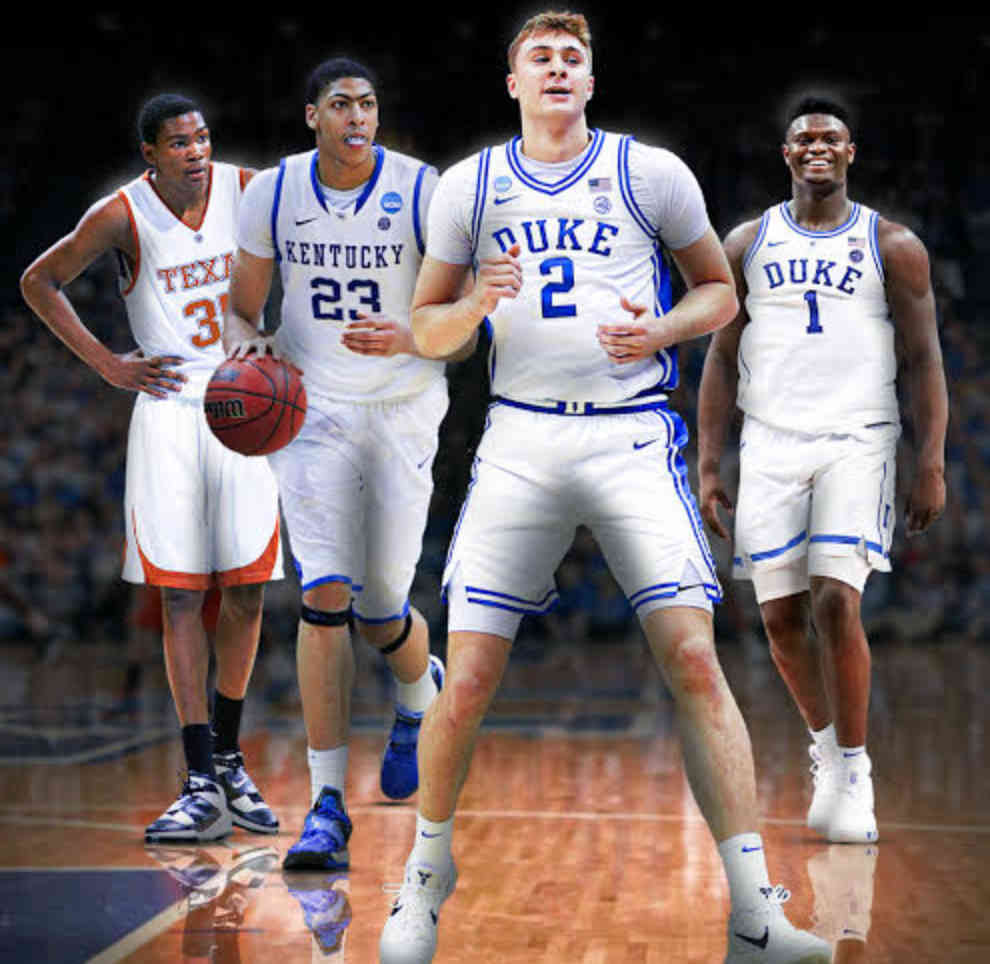
There has been this level of play and standard which have been set by the past, current and those who have already past that freshman stage since coming into the NBA after their draft day.
Before we break into this comparison, we must establish the statistical mountains set by Zion Williamson and Anthony Davis. Both players delivered arguably the two most dominant freshman seasons in college basketball history, albeit in radically different ways.
Both AD and Zion are not doubt on another level, which they proved both in college before getting drafted into the NBA, but Flagg is also on that level when it comes to his performance in school, and he is currently doing that as a professional.
Anthony Davis (Kentucky, 2011-12): The quintessential defensive anchor, winning every major defensive and National Player of the Year award before moving into the NBA. His game was verticality and rim protection, which were exceptional.
Zion Williamson (Duke, 2018-19): A historically efficient offensive force whose power and explosiveness produced scoring numbers on shooting splits unseen from a college freshman. He was tagged as a beast based on his aggressive style of play, which helped him so much.
Cooper Flagg (Duke, 2024-25): Flagg, a National Player of the Year himself, was heralded as the superior two-way package, a point forward with elite perimeter skills and generational defensive instincts which are unmatched. His potential was already gaining widespread attention before getting his big move.
College Season Comparison
| Player | School (Season) | G | PTS | TRB | AST | BLK | FG% | 3P% | FT% |
|---|---|---|---|---|---|---|---|---|---|
| Anthony Davis | Kentucky (2011-12) | 40 | 14.2 | 10.4 | 1.3 | 4.7 | 62.3% | 15.0% | 70.9% |
| Zion Williamson | Duke (2018-19) | 33 | 22.6 | 8.9 | 2.1 | 1.8 | 68.0% | 33.8% | 64.0% |
| Cooper Flagg | Duke (2024-25) | 37 | 19.2 | 7.5 | 4.2 | 1.4 | 48.1% | 38.5% | 84.0% |
These comparisons aren’t just about picking out who is better among them, but showing their impact and what they were able to achieve, which follows in line with what Flagg is currently doing with the Dallas Mavericks.
The Defensive Anomaly: Flagg Vs Davis At The Rim
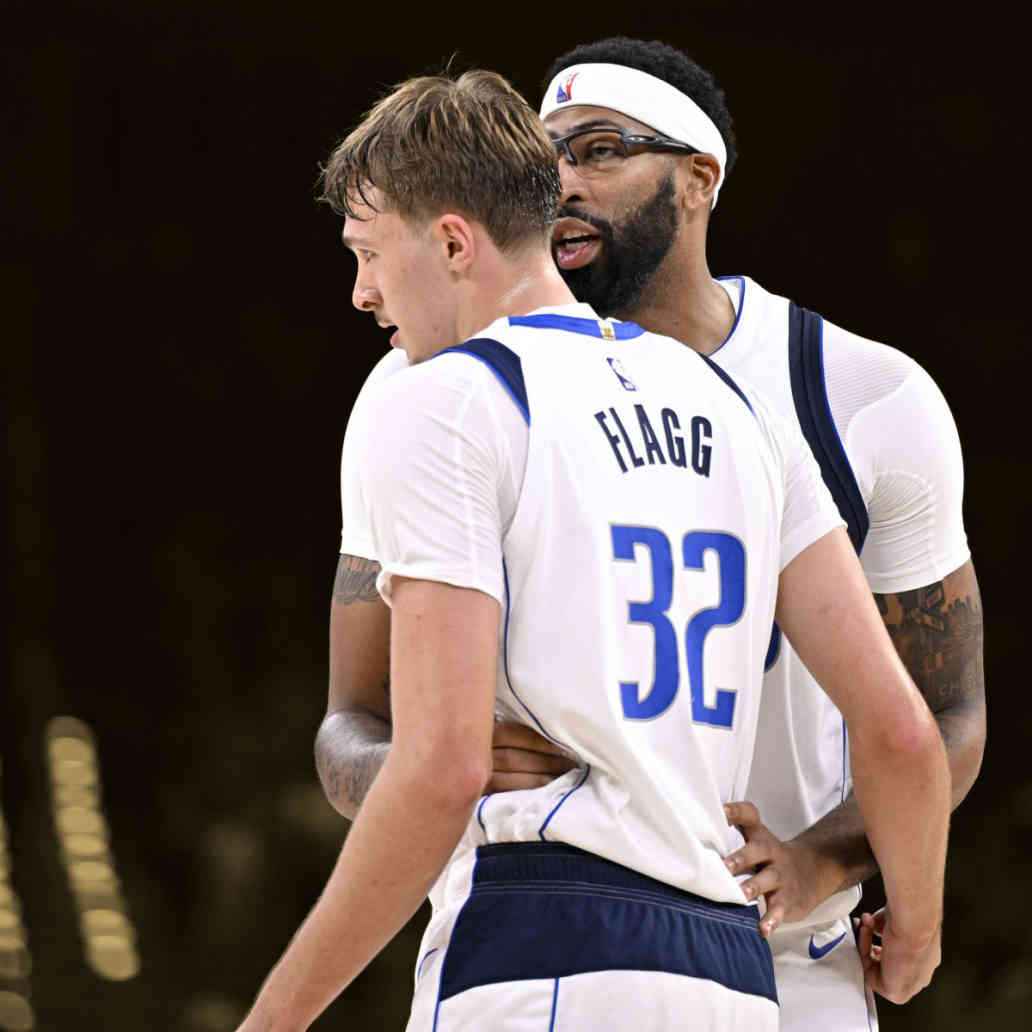
Anthony Davis’s defensive freshman season is the gold standard, statistically unmatched to this day. His sheer volume of shot-blocking created a defensive infrastructure that carried Kentucky to a national title.
Why Flagg’s Versatility Trumps AD’s Interior Volume
The initial takeaway seems clear with AD’s 4.7 BPG being untouchable, and his role as the singular interior deterrent was paramount. However, the NBA of 2025 prioritises defensive versatility and the ability to switch on the perimeter, which is where Flagg’s profile and his early Mavericks stats shine.
READ MORE – Who Is Anthony Davis Wife?
While his 1.4 BPG doesn’t compete with Davis’s record, it’s tied with Davis in Steals Per Game (1.4), a reflection of his elite instincts in passing lanes and on-ball perimeter defence. Davis, for all his block volume, was purely a rim protector, while Flagg is an all-court disruptor.
College Season Defensive Comparison
| Player | School (Season) | Minutes (MPG) | Defensive Rebounds (DRB) | Blocks (BLK) | Steals (STL) | Total Rebounds (TRB) |
|---|---|---|---|---|---|---|
| Anthony Davis | Kentucky (2011-12) | 32.0 | 7.4 | 4.7 | 1.4 | 10.4 |
| Zion Williamson | Duke (2018-19) | 30.0 | 5.4 | 1.8 | 2.1 | 8.9 |
| Cooper Flagg | Duke (2024-25) | 30.7 | 6.2 | 1.4 | 1.4 | 7.5 |
*Stats are per game averages from their respective freshman seasons. Anthony Davis was the most dominant interior defender, while Zion Williamson had the highest steal average.
Early NBA Defensive Translation
Through the first 10 games of the 2025-26 season, Cooper Flagg stats is averaging 1.2 Steals and 0.6 Blocks per game. His steals number is excellent for a rookie, translating his college ability to jump passing lanes directly to the NBA.
The lower block rate (compared to his college 1.4 BPG) reflects his role as an NBA small forward, often covering the perimeter, whereas Zion and AD largely play as power forwards or centers.
HIs defensive statistics demonstrate he is a prototype of the modern NBA forward who is capable of defending multiple positions, and a statistical outlier in his ability to maintain high numbers in both steals and blocks.
Offensive Engine: How Flagg’s Efficiency Stacks Against Zion
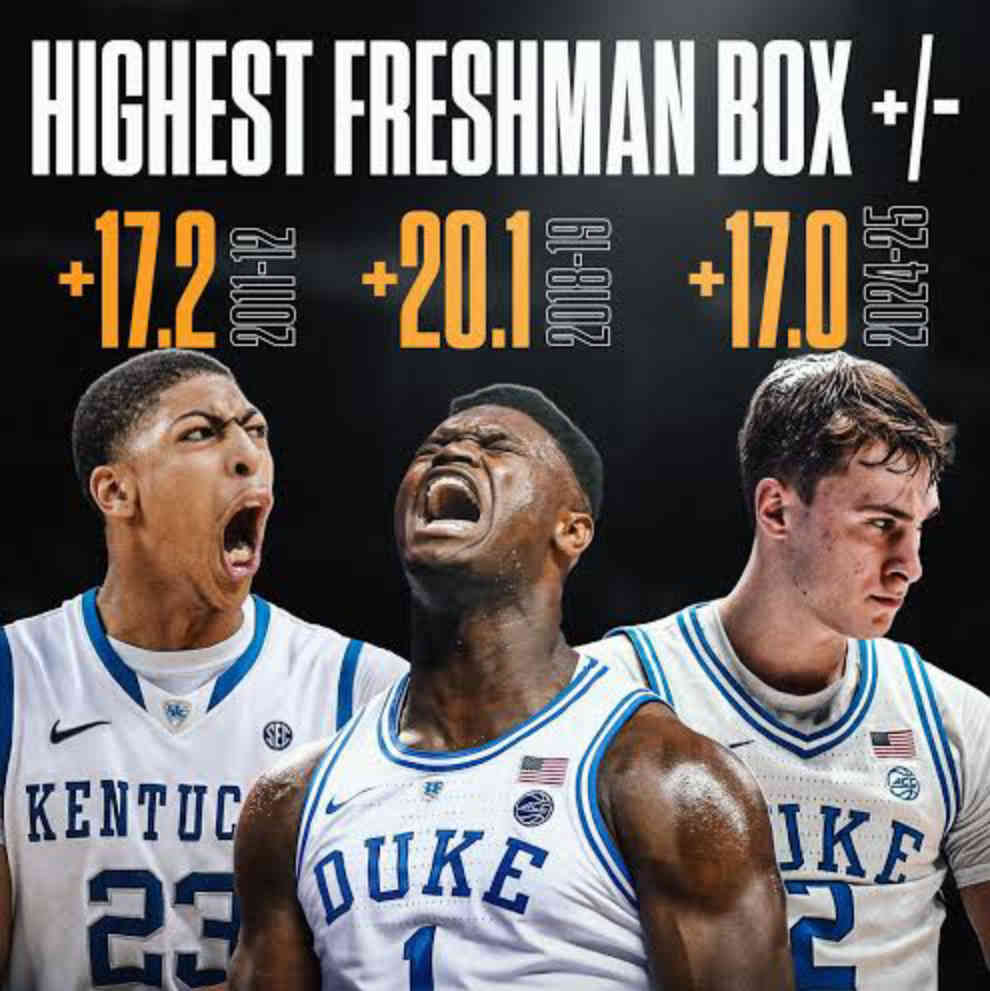
Zion Williamson’s freshman year offence remains statistically unparalleled for sheer brute efficiency, driven by his relentless ability to finish at the rim, which made many teams try to avoid him getting free chances.
Flagg’s Assist Numbers Vs Zion’s Scoring Rate
The data here clearly separates Flagg as the offensive orchestrator. At the same time, Williamson’s 22.6 PPG on an absurd 68.0% FG is arguably the best single-season scoring efficiency ever seen in college; his role was focused almost exclusively on finishing.
Flagg’s 4.2 APG is more than double Zion’s 2.1 APG, which speaks volumes about his usage as a primary ball-handler and decision-maker in Duke’s offence. He was the offensive hub, distributing the ball from the wing and the top of the key, while Zion was the weapon used to finish plays.
Early NBA Offensive Translation
Cooper Flagg’s stats are currently averaging 13.9 PPG and 3.0 APG for the Mavericks. His 3.0 APG is excellent for a rookie forward and suggests his playmaking vision is translating.
His early shooting percentages, however, are struggling with a 40.3% FG and 27.0% 3P%. This dip is a common rookie phenomenon as he adjusts to NBA length and speed, a hurdle that Zion, with his hyper-efficient paint game, initially avoided.
The NBA Ready Trait: Shooting And Playmaking Statistics
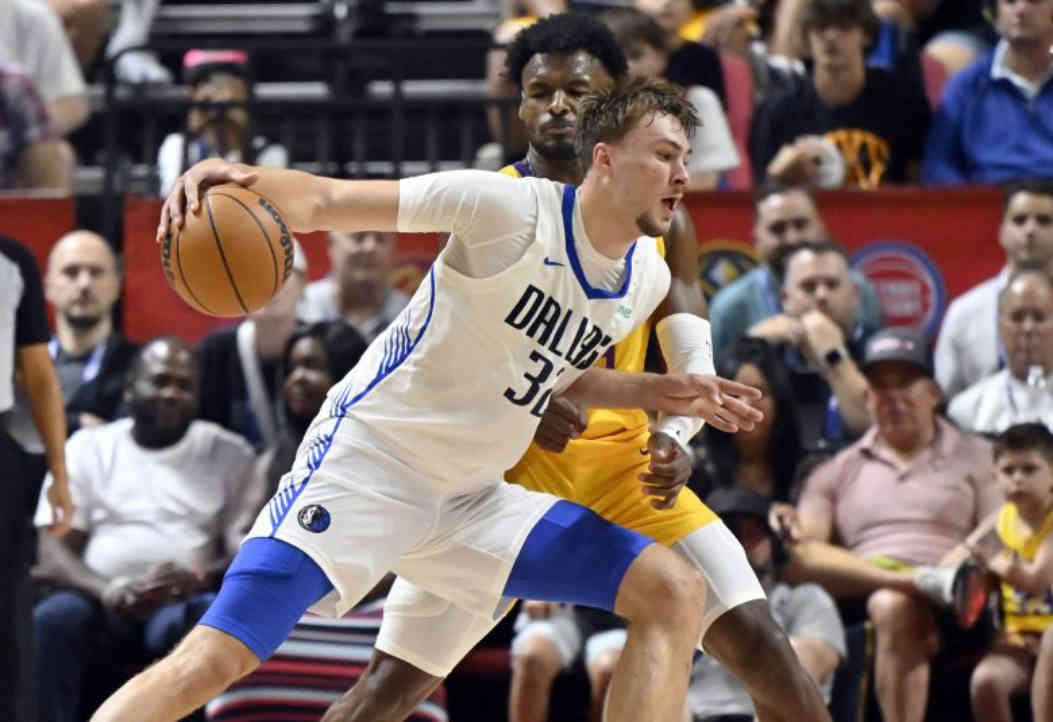
The ultimate separating factor among elite college prospects is the trait that best prepares them for the high-volume, perimeter-centric NBA game, which is never an easy one compared to what they have faced in the lower level.
The Flagg Advantage: Why His Three-Point Volume Sets A New Bar
The shooting numbers are Flagg’s undisputed statistical advantage. His 38.5% from three-point range on 3.6 attempts per game is miles ahead of both Williamson and Davis during their college campaigns.
Davis was functionally non-existent from three-point range, while Zion’s 33.8% was encouraging but came on minimal volume (1.4 attempts) at some point in his college career.
Flagg’s elite three-point marksmanship and high 84.0% Free Throw Percentage are strong indicators of elite shooting mechanics, which is the single most important statistical component that allows an NBA prospect to be easily integrated and built around.
In the modern NBA, a floor-spacer who can also guard five positions is invaluable, and Cooper Flagg’s stats validate that projection. He is able to do more than the average player who is currently on every team roster for the season.
Where Do Cooper Flagg Stats Truly Rank?
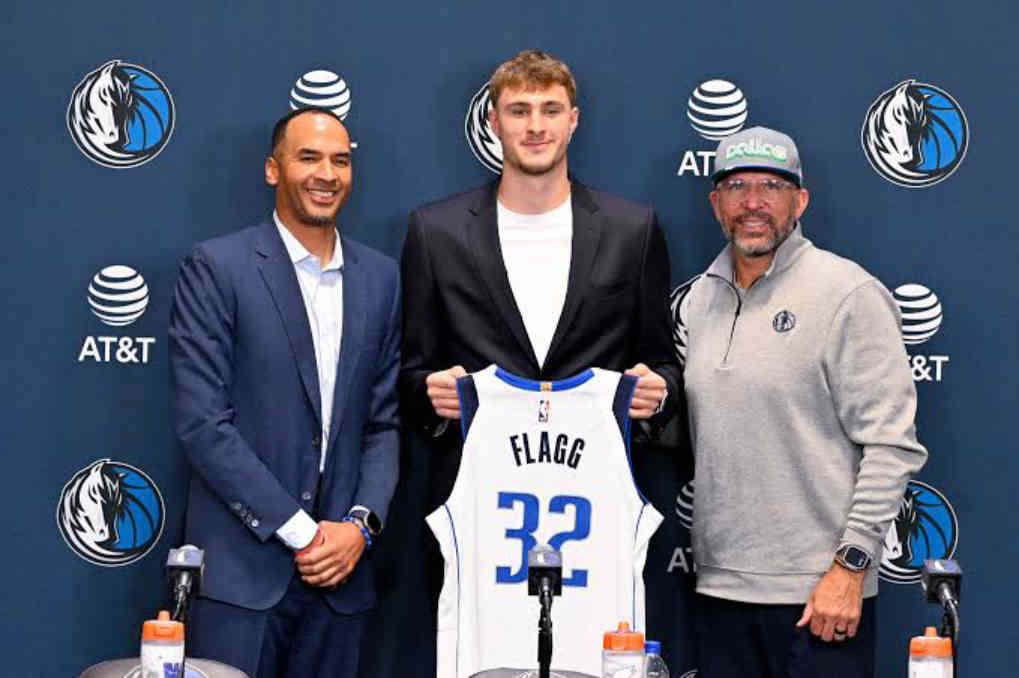
The statistical answer to the question of “Where Do Cooper Flagg Stats Rank Among NBA-Bound Elite Freshmen?” depends entirely on the criteria that are being used to make the comparisons. Cooper Flagg’s stats profile is the most complete and NBA-ready of the three.
While he may not have reached Zion’s historical scoring efficiency or AD’s all-time defensive volume, his unique combination of elite perimeter shooting (38.5% 3P), high-level playmaking (4.2 APG), and all-court defensive disruption (1.4 SPG/BPG) creates a statistical footprint that perfectly aligns with the needs of a modern NBA franchise.
Final Verdict: Projecting Flagg’s NBA Impact

Ten games into his career with the Dallas Mavericks, Flagg’s initial NBA numbers (13.9 PPG, 6.6 RPG, 3.0 APG) show a rookie adjusting to the pace. The early shooting struggles (27.0% 3P) are a minor setback that most rookie perimeter players face.
However, the key takeaway from the Cooper Flagg stats remains his high floor and the statistical basis for future greatness, which are already looking good for him.
He is a playmaker whose 3.0 APG is already higher than Williamson’s best college mark. He is also a defensive catalyst whose 1.2 SPG shows that his instincts are translating instantly.
His mechanics are sound, with stats of 84.0% college FT%, suggesting his NBA shooting will regress to the mean and likely exceed 35% in short order. Cooper Flagg was drafted not for singular dominance like Davis or Zion, but for statistical synergy.
He provides offence, defence, and spacing, which is a statistical cheat code that makes him the ideal cornerstone for the Dallas Mavericks. The foundation laid by his early season suggests he will ultimately settle into the best statistical hybrid among him, AD, and Zion.
NBA Rookie Season Comparison (Per Game)
| Player | Team (Season) | Games (GP) | Minutes (MPG) | PTS | TRB | AST | STL | BLK | FG% |
|---|---|---|---|---|---|---|---|---|---|
| Anthony Davis | New Orleans Hornets (2012-13) | 64 | 28.8 | 13.5 | 8.2 | 1.0 | 1.2 | 1.8 | 51.6% |
| Zion Williamson | New Orleans Pelicans (2019-20) | 24 | 27.8 | 22.5 | 6.3 | 2.1 | 0.7 | 0.4 | 58.3% |
| Cooper Flagg | Dallas Mavericks (2025-26) | 10* | 32.5 | 13.9 | 6.6 | 3.0 | 1.2 | 0.6 | 40.3% |
*Cooper Flagg’s stats reflect the start of the 2025-26 season (as of Nov. 2025) and not a full 82-game season. Zion Williamson’s rookie season was also shortened due to injury.
Cooper Flagg’s stats are only just getting started as he continues to shine playing in the NBA alongside teammates Anthony Davis and Zion Williamson (New Orleans Pelicans), who are both a formidable force when being called to action.




